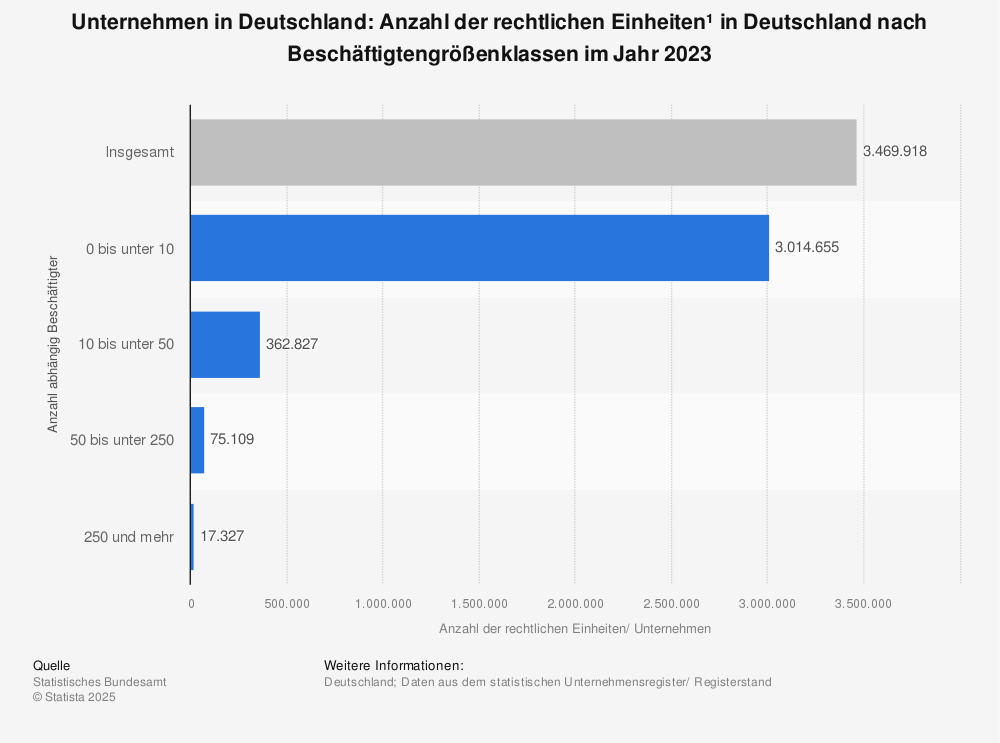Founders and requirements – Starting your own business #2
Founders and requirements – 4 questions for you! The most important questions have been clarified. You have thought about really everything, from the first analysis of your own skills as a founder to the business idea, the market, the customers, the product, your marketing, strategic and operational personnel planning, financial planning, advantages and disadvantages as well as opportunities and risks.
Prerequisites for Founders
Now it’s about testing yourself for the last time, are you ready to take on this big challenge? Once you get to the notary, there’s no turning back. If you now actively decide in favour of the business, you will not be able to part with it without further ado. Even if you decide tomorrow that you won’t go on, you have to take care of the whole reversal. That is why we are now once again reflecting on four fundamental questions for you as an entrepreneur. To this end we take a look at types of entrepreneurs: Seller.
Are I a type of founder or entrepreneur?
Yes or yes? The answer is clear. Yet you may have doubts about yourself, can you really do that? Can you fail? Yes, of course. But it is important that you always believe yourself capable of everything (realistic). You have analysed your skills and knowledge but also your weaknesses. Now it’s about mental strength. Do you dare to steer the boat? Do you dare to lead the crew? Do you dare to set the beat? This point is important, because even if you later have self-doubt or don’t have a direct answer to questions, you still have to be sovereign in your performance. If anyone can provide the answers, it’s you. No matter whether by technical knowledge or by your knowledge, in Puncto of own efficiency. You have to be willing to always give 100%. From Monday morning 1:00 to Sunday night 23:30.
Financial Risk and Expansion
Especially with international expansion, the service times change quickly for you as managing director. Because hiring personnel for a 24 hour shift is difficult when such important, immediate questions arise late in the evening or at night. Calls from Tokyo and LA are not based on European time zones. Accordingly, you must occasionally react at times when most would never think of work. The readiness for customers with A-priority must always be there! Point number three: Your big financial risk. If, for example, you need a loan from the bank for a larger order at the beginning, the loan will not be granted to your company, but to you as a person. If you can’t pay off the loan later, it’s not your company that’s liable, it’s you. The bank might be happy to give you €50,000. After all, credit brokerage is her job. Therefore, you must also be aware of the financial risk of first loans for the terms of the contract.
Dispo credit yes or no?
Tip! Try it without dispo, it’s the one you like best offered. You always have 5.000, 6.000 € at your disposal. For this you pay only one commitment fee per month and interest for the respective dispo amount / period. In my opinion the dispo is a good source of money for the bank but not for you as an entrepreneur. By the end of the month, you’ll still have to count to zero. If you do the new bill without a overdraft facility, you will save a lot of money a year. Once the overdraft facility has been activated, you will probably use it as well. Active or passive. What’s okay, if everything is well calculated, are loans for growth and order processing. If the money makes sustainable growth possible with a high degree of certainty, the loan pays off. The same applies to order peaks. If staff have to be hired in advance or if goods have to be pre-financed, the fast credit of a bank helps. With the order confirmation, you know for sure that you will have paid off the loan within the next few months. In short: Dispo no, credit for secure growth yes.
Are you an entrepreneur? Yes, yes and yes!
Whoever realistically recognizes at this point that he or she has too little chance of success should just as realistically set a point for himself or herself here. After all, the decision to set up a company is about a wide range of issues, from personal financial risk taking to recruiting and employing employees. Take a step back, rethink your own business idea, no breaking a leg. You can always try to start your own company again and learn best practice and know-how in other companies for a few months or years. You can always set up a company. As a person: 30 euros, a visit to the town hall / trade office, identity card and a signature for the foundation are sufficient. For a legal entity, that means UG or GmbH, approx. 1,000 € including notary and tax consultant are sufficient for the opening balance. Here fits a nice saying from the past, “Becoming a father is easy but being a father is hard”. “Becoming an entrepreneur is easy but being an entrepreneur is hard”. This insight is also part of it. If you start your business later, it will stay that way even as an entrepreneur. You constantly have to weigh up and make decisions as to whether projects should be realized or not. Even if you personally would very, very much like to work on a project, you have to be objective as an entrepreneur again.
Projects that are not profitable will not be implemented. As entrepreneurs, we prefer to concentrate on profitable business areas.
How often does a company foundation fail?
When you think about the failure of a company, you naturally always think about capital reasons: The product didn’t sell, too little money, broke. The other possibility: potential would have been there, but the necessary financial means were lacking to get the right mechanism going. But there are also other reasons why companies fail.
A frequent reason for the failure of companies is the founder himself. Often friends start a business and in their daily work owner A finds that owner B spends a maximum of 15% of the time they themselves invest in the project. In practice this quickly leads to disputes. Once negative thoughts are in the company, between two owners, these are difficult to get out of the world again. In this case, the company is usually doomed to failure because the owners no longer pull together. If the company continues to run, owner A has to accept that owner B does less. In practice, it is rarely the case that a partnership agreement lays down requirements for cooperation. Accordingly, the percentages are evenly distributed and cannot be challenged by an argument such as ‘owner B does too little’. Even if the company would go bankrupt without your work, even if owner B does almost nothing but the basic things, even if you keep both entrepreneurs alive, this is not a legal argument. But most of them fail because of the basic idea. So far we have often talked about innovations.
Most of the foundations do not pursue rocket science but quite solid and traditional branches of the economy, the restaurant around the corner, the kiosk, the advertising printing company, the tiling company, the car dealership. Whether offline or online, business ideas need a market. If no one is interested in the product or service, it is doomed to failure. For others it’s because the product is too bad or because the marketing is too bad. Be aware of this, most go KO (including the capital). 90% of all startups fail in the first five years.
Is your idea profitable later in the market?
No matter how good your business idea may be, people must be willing to pay a price for it. One example that is always up to date is factory farming. Many are trying to counter the trend and bring high-quality meat products to the market. On the supermarket shelf, however, the consumer decides in almost all cases in favour of the low-cost variant. More and more organic products are finding their way into supermarkets, but the rate is still well below 10%. Theoretically one would have to buy even more ethically correct, there are seals for that, too, e.g. Demeter. Here, attention is paid to holistic ecological agriculture on the farms and, of course, to animal welfare. The market share is negligibly small. But why is that? Price wins in the end. That is why positive political influences are needed to bring about change in people’s minds.
Prices are not only difficult to understand in mass livestock farming. One kilogram of meat for €1.99. The Vegetable Paddy, 200g for 3,99 € The ICE Ticket, Munich Berlin, over 90 €. The flight incl. a lot of exhaust fumes only 30 €. Often it is not reason that sees, but price. This example shows that, despite a very good or fair idea, some products have difficulties in conquering larger market shares. You will never be able to escape the price war in almost all industries.
According to your starting capital you have to weigh up to what extent your idea is profitable in the market, so that you have your return of investment at the right time and not too late, because then the company will no longer exist. Profitability must be one of the top priorities in your considerations. How do you make your product profitable? Positive PR, public relations, marketing and advertising, pricing and so on. All this plays a role when it comes to establishing products and services in a market or creating a market for them. Depending on financial resources, possibilities and corresponding time options.
Is the capital requirement for a foundation underestimated? You’d better calculate too much. Remember:
- X x 2 + 10%
Statistics: number of enterprises by size of employment (Germany)

More statistics can be found at Statista
I am also an entertainer and motivator?
Presentation is your constant business. Internally and externally, for your team, for customers and for investors. You can read 1000 pages, write 100 pages business plan, 10 pages short presentation and at the end there is always one who has read less, written less and whose presentation has only two slides. Being an entrepreneur does not only mean dealing with calculation, a large part of your business consists of selling your idea. You don’t just need a pitch like that for the big issues around banks and investors. Much more often you are in the following situation: You pitched your business idea in front of customers for an order. A patch therefore does not necessarily consist of a presentation with slides. The easiest way to understand the diversity of pages is to take a look at Hamburg’s city centre. Fashion boutique to fashion boutique, customers pay high amounts quickly with the credit card. None of the dealers would come up with the idea of keeping a detailed pitch about the product. Rather a convincing atmosphere is created. In the luxury boutique it is the single walk-through, without further visitors in the shop and in the next it is the reception with champagne. In the brevity of a patch there is not always time to explain the basic features of a business model. In some conversations, the atmosphere and above all the personal assessment of the founder also plays an important role. As seen before, business models change over time, based on new wishes and needs of customers, competition in market, price situation and changes, the variables are diverse. Investors often invest in the founders behind them.
This as a short, first insight into the world of pitches! We’ll learn you have to be a salesman.



